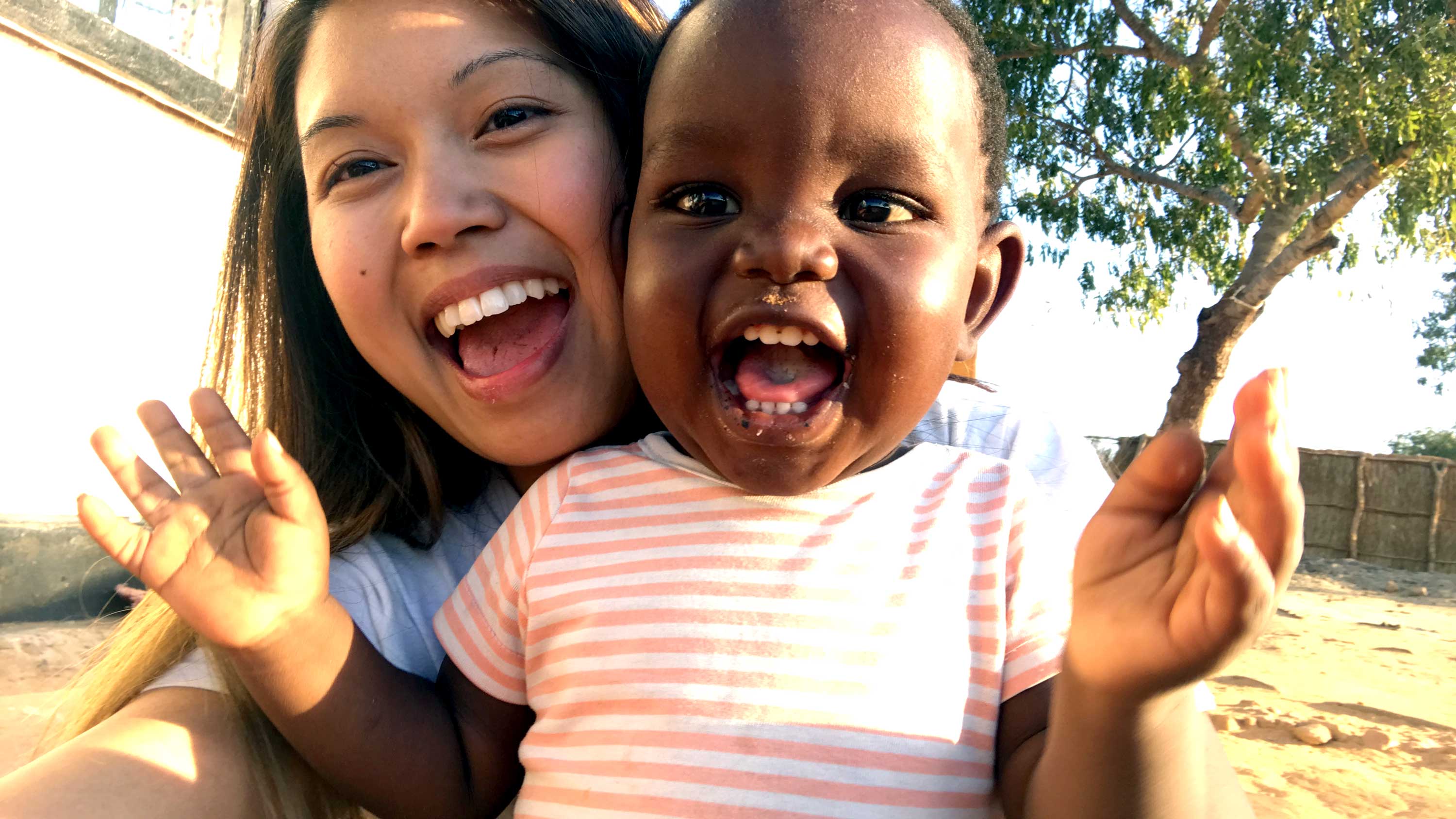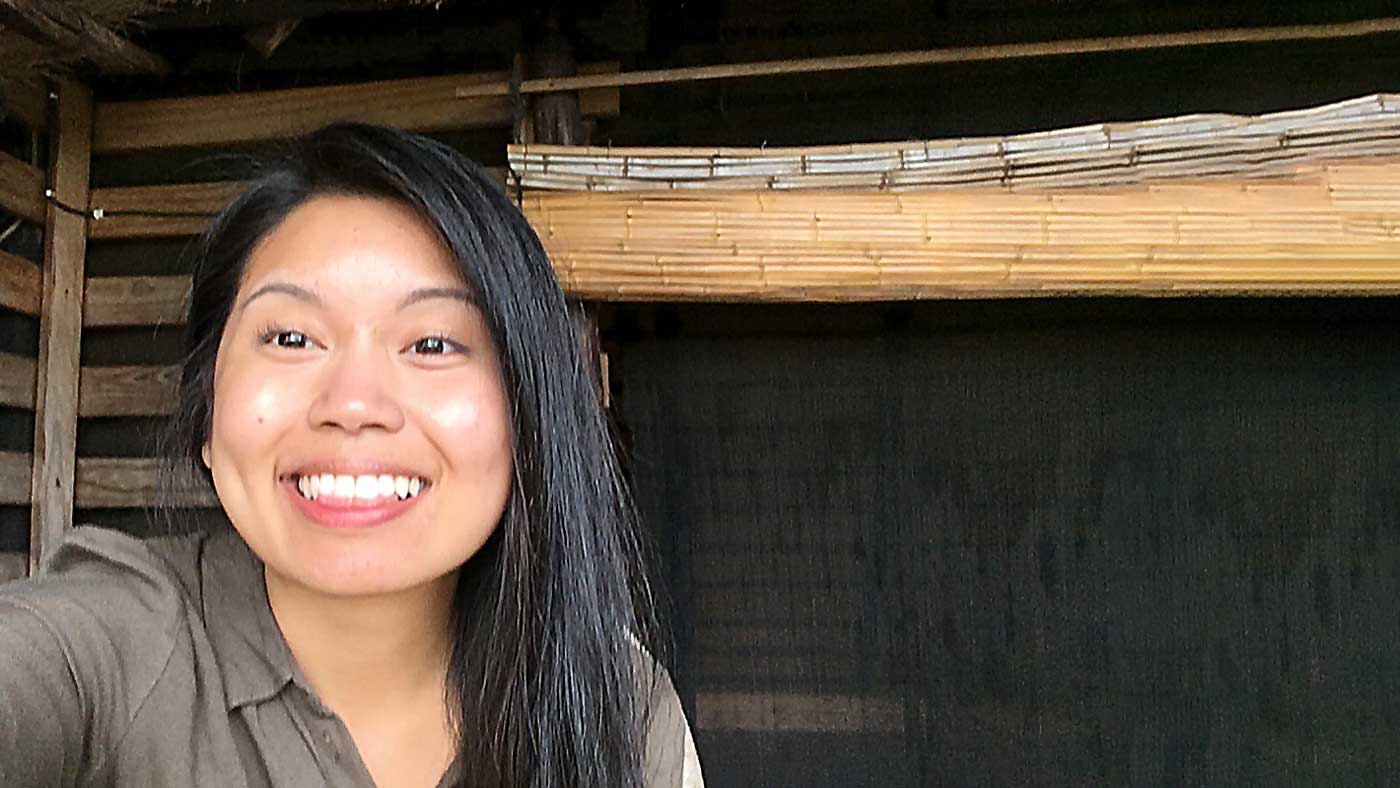Newly minted master of public health graduate Krisha Quiambao will use the international development skills she learned during her program to help reduce the burden of cancer for First Nations, Métis and Inuit people here at home.
Quiambao, 27, will receive her MPH in global health from the University of Alberta’s School of Public Health on Nov. 20 and will start her new job with the Canadian Partnership Against Cancer a week later.
Quiambao said her drive to help vulnerable people get better medical care stems from her own family’s struggles in the village of Calius Gueco, Philippines. She immigrated to Canada with her parents as a child, but still has many family members in rural communities back home.

“It’s become clear to me, through my education and work experiences, that there are similarities between what poorly resourced communities here in Canada face and what communities face internationally,” she said. “I want to target strategies to improve life for First Nations, Inuit and Métis people here in our backyard.”
‘So much more to health’
Quiambao got her BSc in chemistry and psychology from the U of A’s Faculty of Science in 2015 and began her career working for a pharmaceutical company.
Then an opportunity came that she couldn’t pass up: She accepted a job with the Adventist Development and Relief Agency, working to improve maternal, newborn and child health in remote and isolated communities in the Philippines. Stationed in the village of Goa, she helped set up a maternity home where pregnant women could come when they were close to delivery to ensure they would get adequate health care while giving birth. She also helped organize community resources, such as fishermen volunteering to use their boats for transportation.
“I was driven to go back and give back,” Quiambao said. “It’s hard for pregnant women to get to prenatal care if they’re coming from an island or the mountains—these are just some of the barriers they face to achieve a life of health and dignity.”
Quiambao spent six months on the project before learning she had been accepted into the U of A’s Global Health program.
“Public health appealed to me because it is a preventative rather than a responsive approach,” Quiambao said. “There is much more to health than just the clinical aspect, looking at the various determinants of health and factors that interact to influence health status and human dignity.”
“In public health we want to prevent, protect and promote the health of individuals by looking at the systems and barriers they face to get the health care they need,” she said.
International experiences drive passion for local change
During her time at the U of A, Quiambao went to Zambia to work on water development as part of The SAM Project. She helped co-ordinate the efforts of governments and village leaders to rehabilitate water bore holes near rural communities, rather than looking for brand new water sources.

“Various development organizations would come in and dig, but they kept trying to find holes farther away from people’s homes when there was already infrastructure nearby,” she explained. “By fixing the ones closer to home, women and girls did not have to walk so far to get water every day.”
Quiambao earned a Canadian Queen Elizabeth II Diamond Jubilee Scholarship to do further study abroad, but it was cancelled due to COVID-19 travel restrictions, so she pivoted and did her practicum with the Alberta Council of Women's Shelters, helping the 49 member shelters respond to the pandemic by creating plans and tools to keep clients safe.
“Evidence is showing that family violence might become more hidden while everyone is stuck indoors with their partners,” Quiambao said.
As Quiambao moves on to her next challenge working to bring cancer prevention and care to people in Indigenous communities, she is amazed at how many professional skills she has at the ready thanks to her studies. “From project development to evaluation methods, they are all so important,” she said.
But the most important is the critical lens she gained to understand and tackle inequities.
“I’m continuously looking at who’s being left behind,” she said. “Once you see it, you can’t unsee all the barriers that people are facing.
“It’s something I'll take with me for life.”